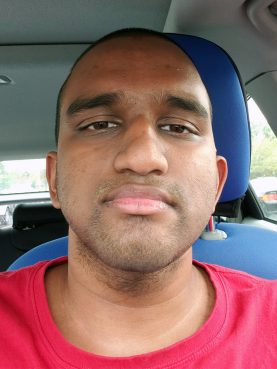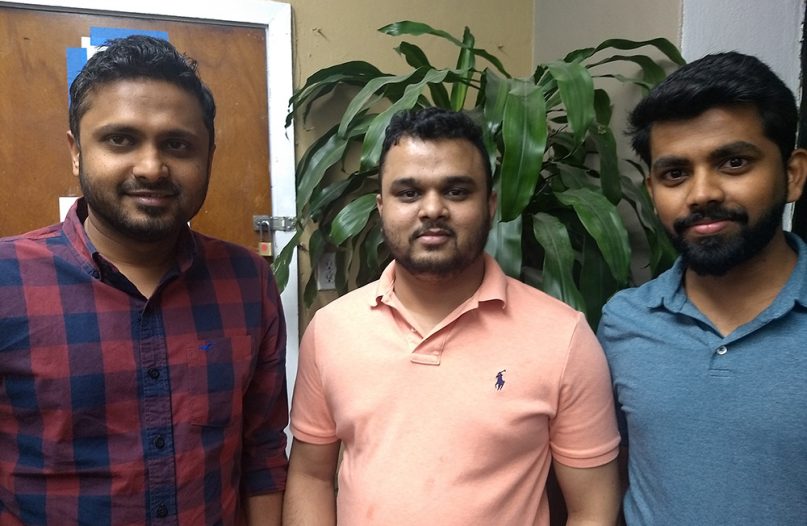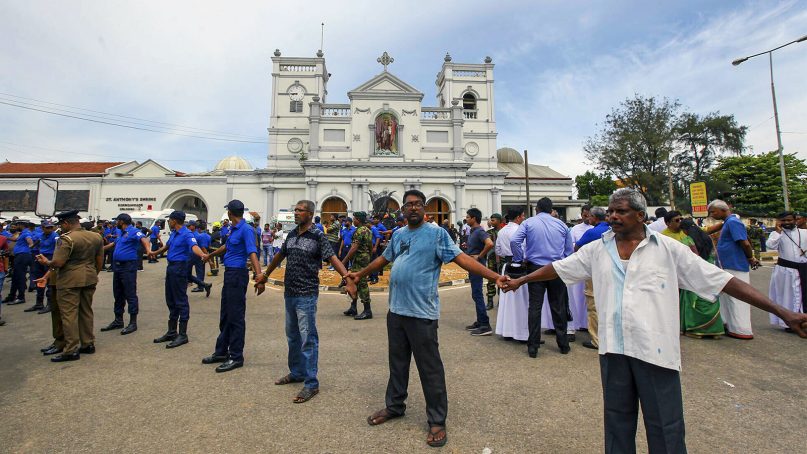NEW YORK (RNS) — Brian Kurukulasuriya has never lived in Sri Lanka. But to him, the Easter Sunday bombings felt personal.
He remembers lighting a votive candle on a visit to St. Anthony’s Shrine in the island nation’s capital, Colombo, and he has visited St. Sebastian’s Church in the nearby city of Negombo. His parents’ wedding reception was at Colombo’s Kingsbury Hotel.
All of those places and more were attacked on April 21, Easter Sunday, in multiple suicide bombings by a Muslim extremist group that killed more than 250 people. His great uncle suffered a shrapnel wound on Easter at St. Sebastian’s.

Brian Kurukulasuriya has never lived in Sri Lanka, but he has visited two of the bombed churches and has a relative who was injured. Courtesy photo
Kurukulasuriya visits Sri Lanka every few years. But in Missouri, where he was raised, he was usually the only Sri Lankan kid in his class. He often wished his friends could see the places he had gotten to know on his trips. Now they finally have — but only in tragedy.
“I would like Sri Lanka to get more exposure, but this is not the way I wanted to see it happen,” said Kurukulasuriya, 23, a recent graduate of The Ohio State University. “Seeing St. Sebastian’s Church and St. Anthony’s Shrine in international media like this, it was horrible. People know about Sri Lanka now, but for the wrong reasons.”
For Sri Lankans who have immigrated here and young Americans with family connections to Sri Lanka, the Easter Sunday bombings mixed horror with shame. The world almost never hears about Sri Lanka. Why did it have to learn about the country this way?
“Oh, I was shocked,” said Mohammed Micdad, 26, an information technology worker who moved to the United States in 2011 and attended a vigil for the bombing victims Tuesday night (April 30) at a church in Queens, New York. “I never expected this kind of attack in Sri Lanka. I have so many Buddhist friends, Hindu friends, Christians. They’re in pain.”
Micdad, who is Muslim, came to the vigil from New Jersey with three other Sri Lankan Muslim friends to show solidarity with the country’s Christians. The vigil was organized by The Association of Sri Lankan Muslims in North America, or TASMINA, and a range of faith leaders spoke from the pulpit.
Although the island’s population of 21 million is diverse, with a Buddhist majority and Muslim, Hindu and Christian minorities, Micdad and his friends said the different religious communities interact and get along.
Sri Lanka’s nearly 26-year civil war, which ended a decade ago, was fought along ethnic lines, not religious ones, between Sri Lanka’s Sinhalese majority and Tamil minority in the north. Previous terrorist attacks have occurred in the country, but mostly in the context of the war, not religious extremism.
People at the vigil said they saw the island as a tranquil natural beauty. Speaking at the vigil, TASMINA’s past president, Arafa Yoosuf, took on an almost mournful tone as he quoted a tourist website’s description of Sri Lanka as a “true paradise on earth” and a “splendid island.”
“This is how Sri Lanka was portrayed to the world up to last Sunday, Easter Sunday,” he said. “Today, all over the globe, Sri Lanka is known by words and terms such as devastation, catastrophe, fiasco, tragedy, crisis and so on.”

Fazrim Mooza, left, Mohammed Arshard and Mohammed Micdad came from Edison, N.J. to Queens, N.Y. for a Sri Lankan Muslim-organized vigil on April 30, 2019, in solidarity with the bombing victims. RNS photo by Ben Sales
The approximately 50,000 Sri Lankans in the United States are also well integrated, said Fazrim Mooza, 37, who has lived in the United States since 2007 and is active in a local Sri Lankan community center. He has spent the past week trying, from afar, to comfort friends of different faiths in Sri Lanka.
“It made it harder because if we were there we could have been with them together,” he said. “They feel the same thing. They don’t want this issue to come between our community. That’s only a few people who want to create troubles.”
Children of Sri Lankan immigrants talked about the bombing in the context of global terrorism as well as gun violence in the United States. Rukaiyaa Arssath, 16, who also attended the vigil, viewed the bombing as just one of several hateful attacks that have occurred recently, including the shooting in a San Diego-area synagogue on April 27 and recent instances of Islamophobia.
“It’s been happening for a couple of weeks consecutively,” she said. “Any sort of hateful attack or hate crime to anybody is as bad, regardless of whether or not you’re from that community or not. So I think that’s what matters most.”
Kurukulasuriya also saw cross-cultural solidarity as one positive outcome of an otherwise horrific event and said he appreciated seeing New Jersey Gov. Phil Murphy attend a mass in Staten Island the day following the attack. That was at least one heartwarming way, he said, that his family’s country was being recognized.
“In the United States, growing up, people didn’t know what Sri Lanka was,” he said. “So to see people acknowledge you exist, albeit in very dire, sad circumstances, it was nice to see that.”





